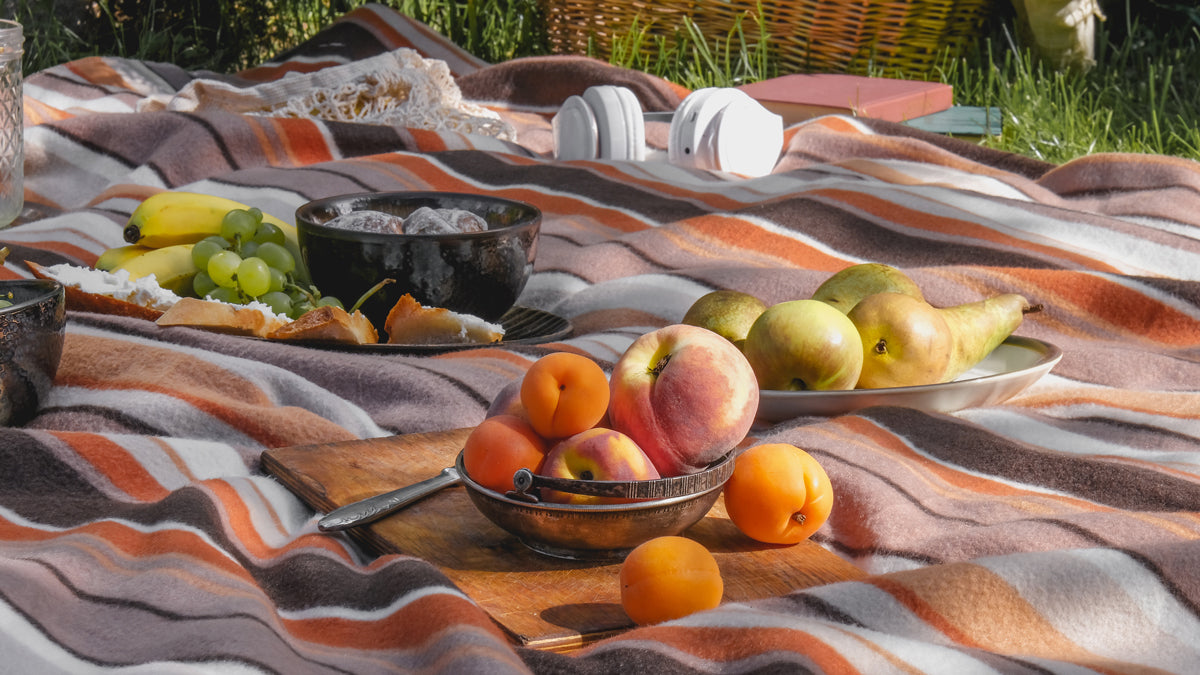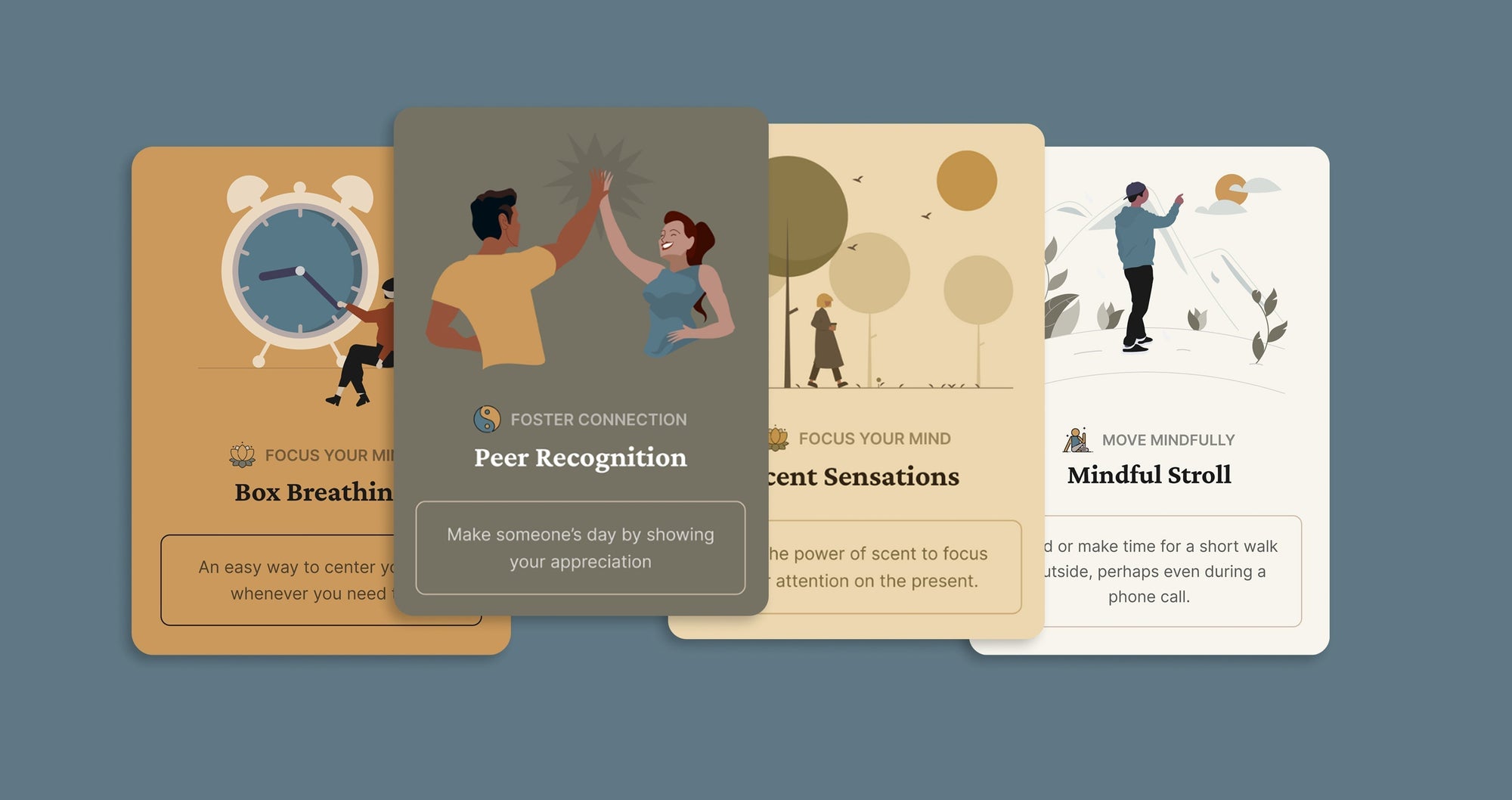Ask a group of people which season is their favorite and many are sure to answer that it's summer. With the longer days (especially around the summer solstice!), outdoor weather, and long break from school, there's nothing quite like soaking in a nice summer day or evening.
Many of us tend to socialize more during the summer, especially due to events like weddings, graduations, and family vacations. The key to enjoying the season without feeling wiped out? Don't neglect summer self care—such as getting enough sleep, prioritizing your skin health, and eating sustainably.
How can you take care of yourself in the summer? Below we've got suggestions for healthy summer foods to fill up on, products to consider adding to your skin care routine, workout ideas, and much more.
How To Elevate Your Summer Self Care
1. Eat More Seasonal Produce
Summer is a great time to connect with nature by starting a garden and growing some of your own produce. You can also hit up local farmers' markets for in-season fruits, veggies, and herbs.
When you prioritize eating well, you feel better overall. Seasonal plant foods also tend to be richer in nutrients, considering they are fresh and require less use of added chemicals to grow.
Which summer food is good for your health? To boost your intake of antioxidants, vitamins, minerals, and fiber, here's a list of what to eat, plant, and grow during the summer:
-
Berries, including strawberries, blueberries, raspberries plus cherries
-
Leafy greens, such as arugula and kale
-
Melon
-
Tomatoes
-
Bell peppers
-
Radishes
-
Green beans
-
Zucchini and summer squash
-
Stone fruit such as peaches and plums
-
Garlic
-
Basil and other herbs
In addition to eating a nutrient-rich diet, make sure to drink plenty of water when it's warm outside, especially if you're sweating more than usual or exercising outdoors.
2. Switch Up Your Workouts
No summer self care routine is complete without a rewarding, sweaty workout. If you typically workout indoors, such as in a gym or at your own home, try taking your workout outdoors this summer to unplug from technology for a bit and reap even more mental health benefits. Research shows that walking, running, cycling, or doing other forms of exercise outside in nature is one of the best ways to lift your mood and energy.
To push yourself a bit further than you normally do, add some intervals to your summer workout. Try doing a combination of walking and running around your neighborhood, cycling up hills and then on flatter surfaces, or doing a full body circuit workout in your own backyard.
If you live near a body of water, adding a couple swimming workouts to your weekly routine is another great idea. Swimming can be a challenging workout, yet it's low-impact and a great option for just about everybody, including those with injuries.
3. Update Your Skincare Routine
You've heard it before: wear sunscreen! If you're not already slathering on SPF each morning, now is the time to get into the habit.
Not surprisingly, the sun's UV rays are the strongest during the summer, especially from about 10am to 4pm. This means you want to protect yourself from sun damage and burns, which affect both the appearance and general health of your skin. On top of using sunscreen, protect your eyes by wearing sunglasses and put on a hat when the sun is strong.
Here's an example of a summer skin routine that will help keep your skin glowing:
-
Wash your skin with a gentler cleanser twice per day. Exfoliate about twice weekly to remove dead skin cells.
-
Try applying vitamin C serum in the morning to reduce signs of sun damage and protect skin from free radicals.
-
Then moisturize, and finally apply SPF 30+ every day.
-
At night, cleanse again and consider using products such as niacinamide or retinol to even your skin tone. Then moisturize and get your beauty sleep!
-
Keep in mind that some skin care products react badly to the sun, making your skin more sensitive to burns and redness. Avoid these products when heading outdoors, and instead use them at night or under SPF: salicylic acid, retin-A, tretinoin, adapalene, tazarotene, retinol, and glycolic acid.
4. Do More Socializing Outdoors
How do you stay mentally healthy in the summer? One way is to take advantage of the longer hours of daylight during the summer by meeting up with friends or family outside.
This serves a double purpose: it encourages you to spend more time outside, ideally in nature, and it improves social bonds.
This summer, catch an outdoor movie with friends, BBQ or enjoy dinner outside, or take a walk after dinner together on the beach or in a park. There's endless things to do with others when the days are long and the temperature is inviting.
Here's the cool thing about prioritizing relationships: spending time with company whose presence brings you joy can actually boost your mental health in many ways, including by lowering your risk for depression. It's the ideal way to decrease loneliness, which is on the rise and problematic for health. There's even an association between socializing more and living longer.
5. Rise and Shine With the Sun
When the summer sun shines through your windows bright and early, try waking up earlier than you usually do and planning your days ahead of time to maximize productivity.
Some people swear by 5 AM wakeups for knocking out their day's to-do list, but if you're not quite ready to rise that early, aim for 6 AM or 7 AM instead to start your mindful morning routine.
Use the first couple hours of your day intentionally, such as for exercising, meditating, journaling, preparing a healthy meal, or tackling the most important task of the day. This sets you up for success by putting you in the right headspace. For instance, some experts believe that people who wake up early are often more goal-oriented and benefit from more confidence due to having greater self-discipline.
6. Restock Your Medicine Cabinet
Whether you're dealing with bug bites, poison ivy or sunburns, these natural remedies should be apart of your summer self care routine:
-
Aloe vera for dry or damaged skin: Aloe is useful for many types of skin sensitivities and reactions because it promotes healthy collagen within your skin, which assists in healing wounds and boosting skin elasticity. Either cut a fresh piece of aloe vera leaf and squeeze out the gel to slather on your skin, or purchase pure aloe vera which should be applied to clean, dry skin.
-
Essential oils as a natural bug repellent: Many essential oils help to naturally repel bugs due to their strong scent, including citronella, lemon, garlic, cinnamon, lavender, peppermint, thyme, and eucalyptus oils. You can find these concentrated oils online or in health food stores; use them to make homemade bug or room sprays by mixing the oils with some water, and then dab a couple drops on your skin or diffuse them in your home to repel pests and insects.
-
Coconut oil to protect skin: If your skin is feeling dry or damaged, or you're dealing with a razor burn or a post-sunburn peeling, 100% pure coconut oil comes in handy. Use it on your skin after your shave or as a natural shaving cream, after spending time in the sun, or even before heading outside to naturally protect against sun damage. Did you know coconut oil naturally has an SPF of about 4? This means it's great under sunscreen for a little extra protection and hydration.
-
Witch hazel for rashes such as poison ivy: When your skin breaks out in an itchy rash, try rubbing on witch hazel, a toner that has natural anti-inflammatory effects. You can also try baking soda and water paste (3-to-1 ratio) to reduce itching, aloe to help heal skin, cucumber slices, ice compresses, and a warm colloidal oatmeal bath to decrease swelling, redness, and discomfort.





